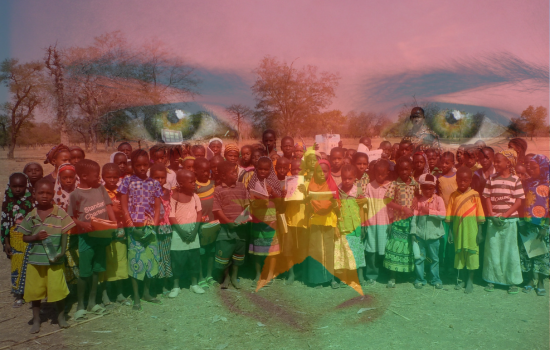Iranian Transnational Terrorism
Terrorism as an instrument for promoting political interests has served the ayatollah’s regime in Iran since its inception. Iranian terrorism was directed against Iranian citizens in their own homeland, against exiles from the opposition, and against targets in those states perceived by leaders of the Iranian regime as enemies of the Islamic revolution.
In recent years, it seemed that political changes in Iran could bring about changes in Iranian terrorism policy as well. Hopes initially rose in the West that Khatami’s election to the presidency in May ‘97 heralded a trend towards a more liberal and democratic interior policy, as well as more pragmatic foreign affairs policy—one that would relinquish terrorism. In April ’97, a Berlin court ruled that the regime’s leaders could be held accountable for the assassination of four Kurdish Iranian opposition leaders at the “Mikonos” restaurant in Berlin (executed in September 92’). Following that ruling, European Community member states imposed economic restrictions and sanctions (albeit limited and short-lived) on Iran. However, expectations that these measures would succeed in restraining Iranian terrorist policy were unfounded.
Iran, under Khatami, strove to promote a pragmatic, liberal image—without these changes being more than cosmetic in nature. The conservative leadership led by Khamenei, which is the de-facto ruling party, did not hesitate to exert severe restrictions on the freedom of the Iranian press, including shutting down newspapers that criticized the regime, and attempts to jail senior officials from Khatami’s camp. The change in Iran’s policy was expressed chiefly in President Khatami’s well-publicized trips abroad—the “pragmatic” side of the Islamic regime. Khatami’s overseas visits contributed to strengthening the country’s diplomatic standing, but failed to lead to palpable changes in Iranian policy with regard to the support of international terrorism. One possible explanation for this is Khatami’s inability to tame his country’s terrorist apparatus—the Intelligence Ministry and the Revolutionary Guards—which report to Khamenei.
The only change that did occur in Iranian support of terrorism in recent years has essentially been a tactical one. Behind the scenes, Iran took steps to adjust its terrorist policy to the circumstances in the international arena—which is less tolerant of this type of activity—making sure its own actions could not be perceived as international terrorism. Iran replaced the direct involvement of Iranian agents in terrorist acts with that of proxy organizations—the most prominent being Hizballah, a central player in Iran’s terror strategy outside the Middle East as well. Iran also makes use of local terrorist units, (for example in Turkey and Azerbaijan), which it trains and sometimes even commissions to carry out terrorist acts against common enemies.
At present, Iran continues to train and fund a rich variety of terrorist groups of diverse nationalities and outlooks, some of which even espouse ideologies contrary to its own. For example, Shiite Iran aids Sunni terror organizations such as the Hamas, as well as the secular Palestinian groups—even Marxist ones—such as George Habash’s Popular Front and Ahmad Jibril’s PFLP-General Command. Iran does flinch at helping the more fundamentalist Sunni terrorist organizations, such as the Gama’a al-Islamiyah, the Egyptian al-Jihad, and the Algerian GIA—organizations which form the foundation of the “International Islamic Front” headed by bin Ladin, and supported by Iran’s bitter enemy, the Afghani Taliban regime. Three years ago, it should be recalled, Iran and the Taliban nearly went to war over the murder of Iranian diplomats in Mazar-e-Sharif (August 98). Now, however, these two terrorism-sponsoring countries find a convenient venue for cooperation in their common support of Islamic terrorism. In other words, when it comes to sponsoring terrorist groups, Iran employs a very pragmatic policy, demonstrating a surprising ideological flexibility.
Nor does Khatami’s anticipated reelection to another term in the coming elections this June promise the hoped-for change in Iran’s current policy with regard to foreign and interior affairs. While Iranian interior policy is a matter for concern primarily for its own citizens, its foreign policy in general, and its terrorist policy in particular should trouble the international community. A coordinated, effective international policy is required to curb Iran’s active support of terrorism. In all probability, only the imposition of international sanctions, such as were imposed on Libya and Afghanistan, would have the power of neutralizing, what the U.S. State Department has termed “most active state sponsor of terrorism still active in the international arena.” These steps should be applied promptly, and the sooner, the better.






